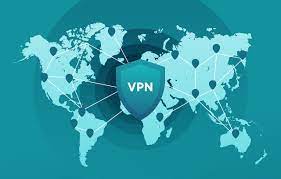College students increasingly rely on technology for online studies, streaming entertainment, and staying in touch with family. However, with all this technology comes the risk of your digital data being exposed. A Virtual Private Network (VPN) can help college students protect their data from malicious actors. In this article we will discuss what a VPN is and the benefits it can provide, the potential risks of not having a VPN, how to choose the right VPN for you, and tips to maximize your privacy and security while using a VPN.
Definition of VPN and its Benefits
A VPN is a technology which allows a user to remain anonymous online by masking their IP address when they connect to the internet. When a user connects to a VPN, their device is assigned a shared IP address that conceals their identity. It gives the user a secure and private connection to access the internet.
One of the main benefits of using a VPN is that it keeps a user�s data secure from hacking and cybercrime. With a VPN, a user�s data is kept safe from prying eyes as they connect to the internet from any potential hotspot or University network. By using a VPN, college students can also access content from geo-restricted sites. A VPN can also help college students save money by getting discounted prices based on their geographical location.
Potential Risks of Not Using a VPN
Not using a VPN presents several potential risks to a college student�s data security. When connecting to the internet without a VPN, a user�s data is accessible to any third-party that might be monitoring the connection. It also opens a user up to identity theft and other malicious attacks. Also, without a VPN, most University networks have limited access to certain websites or streaming services.
How to Choose a VPN
When choosing a VPN it is important to consider factors such as the company�s reputation and payment system. Additionally, it is important to check the security protocols used and the server locations available. It is also important to check the customer support provided and the speed and reliability of the connection. Lastly, be sure to check if the VPN is compatible with your device.
Tips on How to Maximize VPN Use
To maximize your privacy and security while using a VPN, here are a few tips you should follow:
- Regularly update your VPN software when new versions become available.
- Turn on the �Kill Switch� feature to ensure that all internet traffic is routed through the VPN.
- Avoid using public Wi-Fi hotspots without a VPN.
- Be aware of the laws and regulations in the countries you are connecting from and to.
- Periodically check the VPN for malware and other malicious programs.
Conclusion
Using a VPN is essential for college students to protect their data from being exposed to malicious actors. By following the steps outlined in this article, college students can ensure their data is secure and their online activities remain private. If you are interested in learning more, does vpn work in indonesia?

